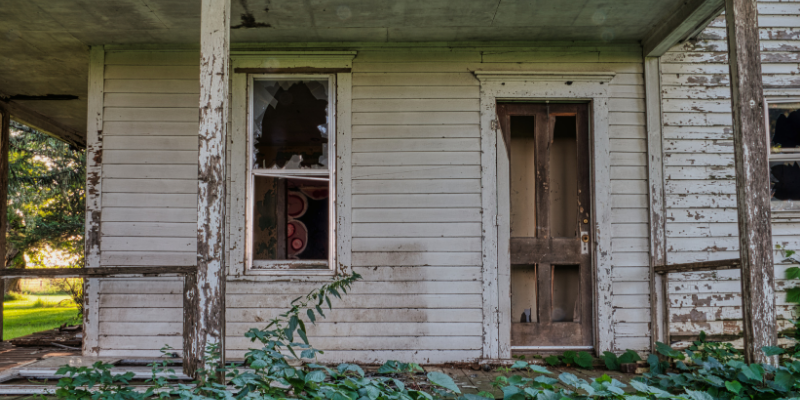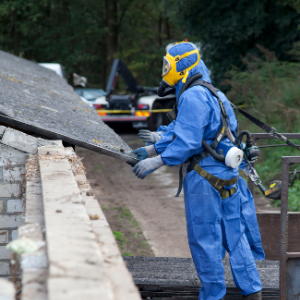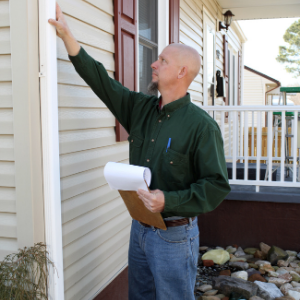
Selling a condemned house in North Carolina can seem daunting, but with the right approach, it’s entirely possible. Understanding the necessary steps to transfer condemned property is crucial for a successful sale. This guide provides clear insights into navigating the legal and practical aspects of selling a condemned home, helping you maximize your property’s value and ensure a smooth transaction. Whether you’re looking to sell quickly or optimize your sale price, our comprehensive overview will equip you with the essential knowledge to make informed decisions and effectively handle the process of selling a condemned property in NC.
Key Highlights
- Understand the legalities and code compliance requirements for effectively selling condemned properties in North Carolina.
- Essential repairs and budget-friendly curb appeal improvements enhance market value and marketability.
- Targeting real estate investors and strategic marketing can attract buyers for condemned houses.
- Leverage real estate agents and digital platforms to reach a broad audience and facilitate sales.
- Case studies demonstrate that strategic planning and collaboration with local authorities are crucial to achieving successful sales.
Understanding a Condemned House in North Carolina
In North Carolina, a condemned house presents unique challenges for both property owners and potential buyers. These houses often raise questions concerning legalities and real estate transactions. Understanding the underlying reasons why properties become condemned and what it entails in the realm of real estate can aid stakeholders. We’ll explore the meaning of condemnation in real estate terms and the common reasons why a house might be condemned in North Carolina. This insight provides a foundation for navigating the complexities of buying, selling, or even residing in such properties.
What Does Condemned Mean in Real Estate Terms?
In real estate, the term ‘condemned’ describes a property that a government authority has prohibited someone from using because of their significant health and safety code violations, dilapidation, and/or hazardous structural and/or eco-friendly conditions. A home with a ‘condemned’ status does not qualify to be occupied, nor can it be sold for residential purposes, unless the violations are remediated or the property is demolished.
In North Carolina, the process for condemnation often starts with inspectors reviewing a property to ensure it meets the designated structural components of the law. Should the property be associated with hazardous violations of public safety, such as unstable foundations, exposed electrical work, and improper sanitation, condemnation is imminent. The subsequent process involves rectifying the breaches within the allotted provisions. Should the property owner fail to comply, restrictions are placed on the property, or the government may legally seize it.
Along with these violations come additional taxes and fines. Obtaining insurance is challenging, and the market value decreases substantially, making the home difficult to sell. Most willing buyers would request assurance that code violations will be remediated. For these reasons, understanding the meaning of condemnation and addressing the subsequent consequences is crucial for navigating the real estate market in North Carolina.
Common Reasons for House Condemnation

In North Carolina, the condition of most condemned homes is detrimental to health or presents other serious safety and habitability issues. The most common reason is neglect of the property for extended periods. Leaving a property unattended for too long can lead to critical structural problems, such as collapsed roofs, foundations, and unchecked rising mold, which can have drastic consequences and are considered hazardous, subsequently leading to condemnation by the state.
Neglect of ‘safety and building’ regulations is another common reason. Defective wiring, unkempt plumbing, a scarcity of smoke detectors, or a lack of organized sanitary systems can all lead to violations that may result in the property being condemned. The state of North Carolina works with and abides by the illustrated housing regulations and acts in the welfare of its citizens, and any property that has been reported as failing to meet such standards.
Such properties are reported to fail due to such factors, and swift actions are taken to modify the building or remove the structure. Condemnation is another route of action taken when property is lying idle. The factors most easily considered in all such clauses are toxic materials, such as lead paint, asbestos, or other forms of environmental chemical contamination. Remediation issues are still resolved by competent professionals abiding by environmental legal frameworks.
Last, natural disasters, including hurricanes and floods, can cause permanent structural damage to houses throughout the state. After these events, visual analysts assess the extent of damage to evaluate the potential for reconstruction. Homes that do not meet the necessary parameters for occupancy certification are, more often than not, subject to the realities of extensive repair and construction.
Familiarity with these particular and common causes of house condemnation can help homeowners avoid potential legal and safety issues, as well as protect their real estate value. Moreover, community members who protect property values, while legal renting of spaces encourages the basis of these actions, can turn a potential safety risk into a sought-after one.
Legal Considerations for Selling Condemned Properties
Selling condemned properties in North Carolina presents its own set of legal challenges, primarily dictated by state-specific regulations and compliance requirements. Understanding the legal framework is crucial, as it governs every aspect from the initial sale to the final handover. This section examines viable options for owners of condemned properties and highlights key regulations related to code compliance in North Carolina. By arming yourself with this knowledge, navigating the labyrinth of selling a condemned house becomes significantly more manageable.
Exploring Your Options for a Condemned Property
Selling a condemned property in North Carolina requires a well-planned strategy that balances financial constraints, legal compliance, and market potential. Homeowners often must decide whether to sell the property in its current condition or invest in substantial repairs to improve its resale value.
For many, selling the property “as is” can be the most practical solution—especially when renovation costs are too steep. In such cases, partnering with professional cash buyers, such as Fair Cash Offers For Homes, provides a straightforward and reliable path forward. These investors specialize in purchasing distressed and condemned properties, offering homeowners fast and hassle-free transactions without the need for costly repairs or lengthy inspections. Fair Cash Offers For Homes understands the complexities of code compliance and ensures each sale aligns with North Carolina’s legal requirements, allowing sellers to move on with peace of mind.
Alternatively, some property owners may choose to engage with local authorities to understand better the violations that led to condemnation. Discussing the specific issues and identifying which repairs are required for reinstatement can help owners determine whether bringing the property back up to code is a feasible option. Although this route demands more effort and time, restoring a condemned home to compliance often enhances its long-term value and broadens its buyer pool.
For those prioritizing speed and simplicity, accepting a cash offer remains the most efficient exit strategy. Cash transactions eliminate the need for mortgage approvals or extensive repairs and typically close in a matter of days. While the sale price may be lower than a fully restored property, the immediate relief from financial and legal burdens often outweighs the difference. With Fair Cash Offers For Homes, sellers benefit from a transparent process, fair evaluations, and the assurance of working with experienced North Carolina investors who handle every step professionally.
Ultimately, exploring all available options—whether renovating, coordinating with authorities, or selling directly for cash—helps homeowners make informed decisions about their condemned properties. Partnering with a trusted buyer like Fair Cash Offers For Homes simplifies a complex process, turning a challenging situation into an opportunity for a fresh start within North Carolina’s real estate market.
Key North Carolina Regulations and Code Compliance
Understanding North Carolina’s regulations and code compliance requirements is essential when selling a condemned property. The state’s legal framework establishes strict standards for structural integrity, safety, and habitability, all of which must be met before a property can be sold or reoccupied.
Compliance with building codes lies at the heart of this process. Condemned homes must meet North Carolina’s safety and habitability standards, covering everything from electrical and plumbing systems to roofing and foundation stability. A thorough inspection is often required to verify compliance, and extensive repairs may be necessary before the property can be legally transferred. Failing to comply with these regulations can result in costly fines or delays, making compliance non-negotiable for sellers.
Aside from fulfilling the structural aspects of the building, the sellers must address any legal or financial issues associated with the property, such as unpaid taxes, property liens, disputes with previous owners, and unresolved inheritance conflicts. These issues cloud the pending resolution, and clearing them minimizes the chances of any unresolved problems in the future regarding the transaction and settlement. Having a legal counsel specializing in real property issues in NC might assist in expediting the process, as well as set some of the minimum requirements that need to be addressed.
Environmental legislation is yet another essential consideration. Older condemned homes may contain additional hazardous materials, such as asbestos, lead paint, or mold, which are heavily regulated under state health and environmental laws and may be required to be addressed in future legislation. Such Certified Inspectors, mandated by applicable legal provisions, not only protect the future occupants of the property but also remediate hazards, and thus deserve commendation.
North Carolina is, to some degree, unique. Dilapidated and abandoned homes in NC present a unique challenge. The rest of the country isn’t like North Carolina, and neither is North Carolina like the rest of the country. And with NC still experiencing relative growth within its population. NC poses additional unique challenges. Proximate legal due diligence, relatively accessible legal provisions, and a terrific set of responsive, cross-skilled professionals assist in addressing NC state and city codes, as well as unique additional environmental issues. Compliance, as well as NC risk, is significantly influenced by at least some untapped NC quality.
How to Prepare a Condemned House for Sale
Weeks of diligent planning and complex renovation strategies must precede the actual preparation of a condemned house for sale in North Carolina. Undertaking repairs, making the property compliant with the law, and enhancing the curb appeal can all improve your standing in the cut-throat real estate market. This handbook outlines the critical repairs needed to breathe new life into a condemned property and the most economical means of transforming a property’s curb appeal. These actions ensure the market value of a property and smooth, unencumbered real estate transactions.
Essential Repairs to Consider

When selling a condemned house in North Carolina, the immediate focus for reinstatement should be on the essential repairs required for rehabilitation. A primary improvement plan should be devised for the most major, core structural, and critical safety repairs. Elements like replacing the roof before selling, restive and collapsing underpinning, the electrical and plumbing systems, remnants left over from previous damage, and any breaches in the property boundaries should be addressed first, as these are key areas of concern. Addressing these corrections safeguards the most fundamental needs of the property and also eases concerns for prospective buyers, making the home safer and more appealing.
Having a professional on-site for an inspection will allow the healing process to be streamlined, as North Carolina has a stringent rule for the construction and safety of any property. The inspection done with the construction builders for the hated and ruined property will allow these stakeholders to line up the process, settle, and achieve the halved butt smoothie, the butt of gratitude to the region.
Concerns regarding your health and safety, as well as public health, will be brought to the forefront. The process of selling a property involves considering the potential asbestos exposure, inspecting for possible mold, addressing rodent infestations, and assessing the presence of lead-based paint, as well as the risk of hasty selling without proper consideration and a complete understanding of the property’s condition. These repairs have the potential to save future inhabitants. These steps will also allow for the appropriate selling, free from any form of adversity.
After mitigating the structural and safety issues, the following aesthetic changes would be easy yet impactful. The changes include fresh neutral paint, minor updates to light fixtures, and some light organizational tidying, which makes the home more visually appealing and allows buyers to appreciate its potential better.
Selling a property that would generally be considered condemned would be possible through concentrating on and completing fundamental repairs, which would increase safety and the property’s presentation. These basic repairs do more than just ensure compliance. They significantly enhance the property’s value and desirability in the North Carolina real estate market.
Improving Curb Appeal on a Budget
There are several reasons for updating the premises and attractiveness of a condemned property in North Carolina, most notably to attract more potential buyers and increase the perceived value of the property. They say you never get a second chance to make a first impression, and oftentimes, the first impression of a buyer for a house is the exterior. The problem, however, is that the modern market is very competitive. Knowing this, the owner of the house, in this case, is fortunate, as the issue of buyer perception and perceived value does not necessitate significant spending. There are a range of minor and cost-effective ways of making the house seem a lot more appealing than just old and dusty.
One of the most effective and cost-effective measures is simply painting the exterior. The complementary colors and shades of the house do not necessarily need to range from heavy to extreme. Simple and light colors are preferred, such as neutral tones, pale pink, light grey, cream, and light sea green, among others. The goal is to grab attention towards the distinct and lively colors of the house, especially the main door. To do this, a vivid tone of red or blue is the best choice. While this may not seem like much, the owner is likely to believe that such a simplistic approach is overshooting the value of the property, and so the price can be settled simply.
Landscaping also contributes to improving curb appeal. Untamed bushes, tall uncut lawns, and untrained trees can turn any reputable piece of real estate into a ghost property. Relaxing a bit in the manicured landscape, with its hedges, walkable lawns, and sidewalks, gives an instant impression of civilization. Strategically placing petunias or other inexpensive flowering plants around the property brings vibrancy to the colour palette, and by using the indigenous flora of North Carolina, one can achieve minimal upkeep with long-standing blooms. A well-manicured and vibrant property literally illuminated subdued interiors and suggests to prospective owners the amount of upkeep that has been invested.
Completing a few minor exterior repairs and cleaning will also improve the home’s appearance. These include cracks in the walkways, loose and worn-out fittings, and gutters that affect their function and appearance. Even cleaning the gutters is a chore that, when combined with washing the driveway, sidewalks, and siding, will remove dirt, mold, and debris that have accumulated over the years. As a result, the property will look and feel new.
In addition, the property’s curb appeal can be easily enhanced with thoughtful lighting, a reasonably priced technique. This is particularly useful in cases where a property is marketed and shown after sunset. Strategic lighting, prearranged alongside driveways, pathways, and the home’s entrance, can enhance the home’s beauty and improve safety. Other, secondary light fixtures can serve the purpose of illuminating pathways and borders, improving security and elegance.
These small strategic changes can completely change the exterior of an abandoned property. Sellers can make their homes more appealing by focusing on low-cost changes that have a high visual impact. Improvements to curb appeal enhance the property’s marketability and instill confidence in buyers who may be apprehensive about purchasing a property that requires work. In North Carolina, a competitive real estate market, Sellers can rest assured that a property with a neat exterior will sell faster compared to a property that is not well-maintained.
Finding Buyers for Condemned Houses in North Carolina
In North Carolina, selling a condemned house can be extremely difficult; however, the right buyers can make the task more manageable. Likely buyers will include real estate developers, investors, and individuals seeking to renovate and restore a dilapidated house. These buyers can be reached through targeted marketing, which identifies capped worth, curtailed expectation, and potential. Furthermore, working with real estate agents, marketing the property online, and advertising through Glenwood South makes any house easier to sell. This systematic approach converts condemned houses into real estate gains, rather than losses, in the North Carolina market.
| Buyer Type | Attraction Strategy | Key Considerations | Marketing Tools | Financing Options |
| Real Estate Investors | Highlight potential ROI | Profit margins | Email newsletters, network events | Private lending, cash offers |
| House Flippers | Focus on resale potential | Renovation costs | Social media, before-and-after visuals | Short-term loans, hard money |
| Non-profit Organizations | Emphasize community benefits | Long-term community impact | Press releases, community outreach | Grants, government funding |
| First-time Homebuyers | Promote affordability | Condition of property | Online listings, virtual tours | FHA loans, down payment assistance |
This table encapsulates the multifaceted strategies required to successfully market condemned houses in North Carolina’s challenging real estate market.
How to Attract Buyers for a Condemned House
In the case of a condemned house in North Carolina, buyers should view it as an opportunity and an investment rather than a liability. Utilizing effective marketing techniques and communication strategies, one can attract investors, home flippers, and buyers seeking low-priced renovation properties.
People who want to buy the property also wish to do so because of its potential. If a structure’s foundation is undamaged and the home is in a desirable area, buyers may overlook the structural issues. Reinforce local amenities, such as schools, public transportation, and any new infrastructure being introduced, which will enhance property value. While writing your listing, talk about what the property and area will become rather than the value it houses in the present. Paint a picture for investors that showcases future value and opportunities.
The visual presentation of the property must also be professional. For distressed properties, professional photos help to add appeal. Compelling photographic compositions that capture the essence of the property, alongside creative and imaginative enhancements for renovations, can help spark the buyer’s creativity. Some sellers utilize the simulations of restoration or digital renders to help the clients visualize the post-restoration outcomes. Visual storytelling like this can help eliminate disbelief and transform it into curiosity. Such listings become remarkable.
Without fundamental dishonesty, buyers may be more attracted. Integrity and trust can be achieved through providing a comprehensive property assessment and the full inspection report. Buyers have the right to know about the property, its current state, the necessary repairs, and the overall renovation costs. Such disclosure is immensely reassuring, especially in properties that may have a condemnation status, wherein buyers have a right to be informed regarding unpleasant surprises.
These measures, especially the open lines of communication, increase buyer trust. Do not hesitate to respond to questions and have answers regarding North Carolina’s own distinct zoning, building, and other local requirements at hand. You demonstrate that the communication is purposeful, and the aim, at least for the buyer, is trust and professionalism. You indicate that the transaction is aimed to be honest and as fair as possible in the end.
For many buyers, flexibility is a significant area of concern. Financed lost cause properties, for example, may present some difficulties because traditional loans are not always an option. Creative approaches such as offering seller financing or a lease-to-own option may help entice more buyers. These flexible terms facilitate buyers’ ease of financing recovery work, thereby speeding up the selling process and attracting more fix-and-flip buyers.
There is a direct correlation proposition, and the benefits are clear, with immense potential, particularly in North Carolina. These investors, realtors, and renovation specialists inspect the property to be marketed as part of their broader community work aimed at improving it. This side of the proposition would appeal to buyers who are more mission-driven, as they seek to strengthen funds from the community, not just from the work itself.
Flexibility in terms of communication and other aspects of the property will facilitate a closed-door negotiation process, culminating in the sale. Using a simple form to show potential buyers the house and home, while letting them along in the process of providing information, interests other investors. This distressed property becomes highly sought after due to its potential for future growth. A potential housed becomes a firm and valuable anchor, and that up-and-coming lost cause becomes a solid foundation. This change in status becomes valuable with minimal effort or a slight adjustment in meditation.
Utilizing Real Estate Agents and Online Platforms in North Carolina

In North Carolina, selling a condemned house can be approached intelligently through the use of a real estate agent and various digital avenues, where applicable. Both of these strategies can be used in cooperation to enhance your problem, aid in the effective closure of the sale, and address other sales concerns.
Every real estate agent in North Carolina is familiar with the various strategies to promote a house and bring amazing potential buyers to the closing table. They have thoroughly studied the various condemnation property regulations for the state and can assist with the closure of more complex legal requirements.
In real estate, most profits are made by lying through your teeth and marketing fake opportunities. Bait-and-switch marketing is highly effective. Selling listings that feature a house with potential in a great location, but require many repairs, is a quick way to go. A bunch of investors are always looking for fake opportunities to waste their cash on.
Additionally, an agent can:
- Ensure your listing meets all disclosure and compliance requirements.
- Handle communication and negotiation with interested buyers.
- Coordinate inspections, paperwork, and the final sale process to ensure seamless completion.
With the right agent, even a condemned property can be presented as an opportunity rather than a burden.
Today’s buyers often start their home search online, making digital visibility essential. Listing your property on trusted sites like Zillow, Realtor.com, Trulia, or Redfin helps you reach local and out-of-state investors looking to purchase homes in North Carolina.
For the best results:
- Write SEO-friendly property descriptions that include phrases like “as-is property,” “investment opportunity,” or “condemned house for sale in NC.”
- Include high-quality photos that show both the current condition and potential of the home.
- Offer virtual tours or 3D walkthroughs to help remote buyers visualize the property’s layout.
Your engagement boosts these efforts, improving listing visibility and thereby ranking higher in relevant web queries, which in turn leads to increased listing outrageously, ultimately enhancing the chances of engagement and connecting with the desired buyer.
Another channel that can play a role in the sale of a condemned property is social media. With access to platforms such as Facebook Marketplace, Instagram, and LinkedIn, investors can be attracted through renovated ideas. These ideas can be showcased as before-and-after imagery, along with short video walkthroughs, ultimately assisting in the sale of a condemned property.
Encourage your followers and members of local real estate forums to share these posts to increase their visibility. With a single, well-targeted post, you can connect with a buyer ready to purchase distressed properties at a bargain, as well as properties located within North Carolina.
To enhance the visibility and credibility of properties put on sale, the combination of skills possessed by real estate agents and online marketing should be utilized. These agents would manage online listings, as well as social media, to generate interest and leads, while also handling the technical aspects and compliance requirements of social media.
This blend of marketing strategies transforms the sale of a condemned property from a hurdle to an excellent opportunity. One can sell a condemned house in North Carolina fast and legally, through strategic innovation and marketing training that is aligned with the process. This turns the dilemma that hides within a condemned property into a worthwhile outcome.
Selling a condemned house in North Carolina may initially seem daunting, but with thorough research and strategic planning, the process can become far more manageable. By understanding the legal requirements, engaging with real estate professionals, and exploring fast-selling options like working with Fair Cash Offers For Homes, homeowners in Fayetteville can streamline the process and sell their house fast for cash, avoiding costly repairs and delays. You can contact us at (919) 551-8506 today!
This approach not only ensures compliance with state regulations but also helps maximize the property’s value within existing market constraints. Ultimately, preparedness and informed decision-making—paired with trusted local cash home buyers—can transform what seems like a liability into a valuable opportunity, paving the way for a smoother and faster transition in the real estate journey.
Frequently Asked Questions
What is the legal implication of a “condemned house” status in the State of North Carolina?
North Carolina government agencies will classify a house as condemned when it is structurally unsound and deemed unsafe for occupancy. This is as a result of the house suffering severe disrepair and failing to meet fundamental local building standards. The house will either have to be repaired or the unsafe structure will have to be demolished, allowing the local authorities to correct the safety and habitability standards.
What is the legal process in North Carolina for selling a property that has been condemned?
In North Carolina, you can sell a condemned house “as is” and for cash to real estate developers and property investors who have experience purchasing properties in this condition. Alternatively, you can undertake a legal process that has been developed in accordance with state policies for selling condemned property, or collaborate with local authorities to better understand the boundaries of safety standards associated with code violations.
What are some ways to sell a condemned house to more buyers?
A house in this condition can be sold as long as money has been invested in making the necessary repairs to comply with building standards. Once this has been achieved, the property can be “dressed” or “de-stressed” to create “better” or “best” value and curb appeal. Performing this in the local neighborhood will allow the real estate holder to become the “go-to” when marketing distressed homes to investors. Digital marketing is another method that will enhance the market outreach of a property.
Who are the typical buyers for the condemned houses in North Carolina?
With the unfit houses for living, the common buyers include real estate investors, developers, and people with an interest in rehabilitating such dwellings. There is a trend where people are drawn to the house for the enormous anticipated profit, despite the investment required for the changes. The buyers can be easily reached with the help of the location advantages and the opportunities this property offers.
What are the challenges in selling a condemned house?
When selling a condemned house, several legal challenges arise. This could include restrictions due to compliance with building codes and other legal claims, such as liens. Furthermore, the property’s condition poses a greater risk, which could impede a buyer’s chances of acquiring traditional financing. The more of these challenges there are, the more extensive the legal and marketing strategies need to be.
Helpful North Carolina Blog Articles
• Can You Sell a House With a Mortgage in North Carolina
• How to Sell a House While Relocating in North Carolina
• Selling a House In Probate In North Carolina
• For Sale by Owner: Paperwork for Selling a House in North Carolina
• Selling a House During Divorce in North Carolina
• Selling a House With Septic Tank Problems in North Carolina
• Selling My Parents’ Home to Pay for Elder Care in North Carolina
• Squatter’s Rights and Laws in North Carolina
• Who Pays HOA Fees at Closing in North Carolina
• How to Sell a Condemned House in NC
• Does a Seller Pay Closing Costs in North Carolina?

